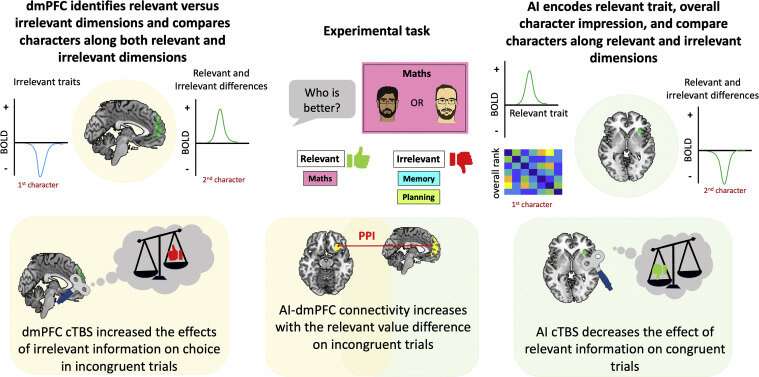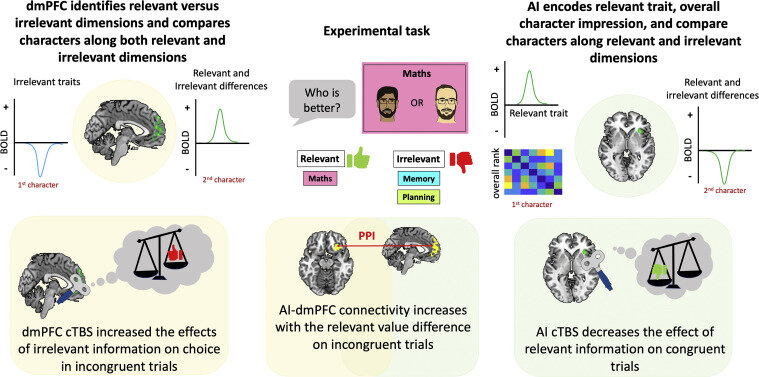
Humans are innately able to separate information regarding others in their social circle depending on their needs and what they are looking for. For instance, they might contact a friend who is a lawyer if they need advice with a legal matter or contact an empathetic friend if they need emotional support on a personal matter.
While this human ability to selectively separate social information about others based on the task that they are tackling is widely documented, the neural processes underpinning it have not yet been uncovered. A recent paper by researchers at the University of Oxford, published in Neuron, unveils a neural pathway that could play a key role in this unique mental and social ability.
“In many scenarios, for example searching for a friend to help with home repairs, we should focus on people’s ability to perform the task at hand and ignore their ability in other domains,” Ali Mahmoodi, one of the researchers who carried out the study, told Medical Xpress.
“Our friend might be an eminent neuroscientist, but in this case, we care more about their ability to use a hammer or a screwdriver. We investigated how the brain solves the problem of selecting and separating the most relevant dimension for comparison, using a multidimensional social comparison task.”
To examine the neural mechanisms underpinning the selection and separation of task-relevant social information, Mahmoodi and his colleagues carried out an experiment involving 30 participants. Each of these participants completed a social comparison task, during which their brain activity was recorded using functional magnetic resonance imaging (fMRI). FMRI is an imaging technique commonly used in neuroscience studies, which measures changes in the blood flow associated with activity in different brain regions.
“We used an experimental paradigm in which people had to compare two characters in one domain (relevant) while ignoring their ability in two other domains (irrelevant),” Mahmoodi said. “For example, they had to compare their friends’ home repair ability, while ignoring how good they are at math and memory tests. The key in this paradigm is that people should focus on the relevant trait (e.g., home repair skills) and ignore the two other irrelevant traits (e.g., math and memory).”
When they looked at the fMRI scans collected during their experiment, Mahmoodi and his colleagues found that two brain regions were particularly active as the participants completed the social comparison task. These two regions were the dorsomedial prefrontal cortex (dmPFC), a brain area known to play a key role in social cognition, as well as the anterior insula (AI), a brain area that regulates the integration of subjective feelings into mental processes.
“We found that when it is difficult for people to compare others in the relevant dimension (the two characters to be compared are similar), people use the irrelevant information to compare them,” Mahmodi added. “At the neural level, we found a brain area in the medial prefrontal cortex that minimizes the impact of the irrelevant information on our decision-making. Critically, when we temporarily disrupted the activity of this area using brain stimulation techniques, people’s comparison of others was more influenced by irrelevant information, compared to stimulation of other brain areas.”
The recent work by this team of researchers pinpoints a neural circuit that could underly the valuable ability of humans to selectively sort through social information and focus on specific skills or qualities of others based on the context they are in. In the future, it could pave the way for new studies exploring the role of the dmPFC-AI circuit they uncovered further.
More information:
Ali Mahmoodi et al, Causal role of a neural system for separating and selecting multidimensional social cognitive information, Neuron (2023). DOI: 10.1016/j.neuron.2022.12.030
Journal information:
Neuron
Source: Read Full Article






